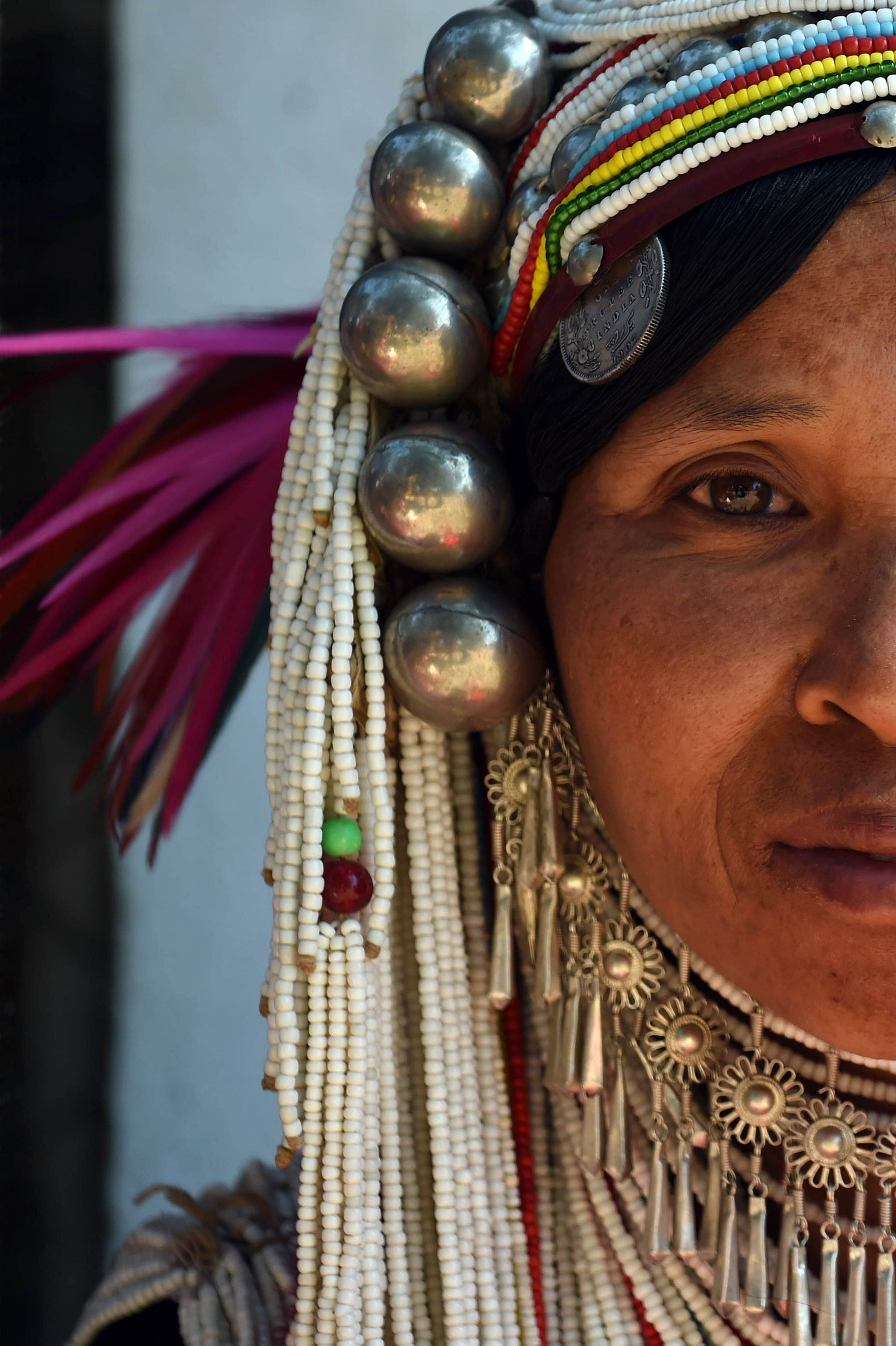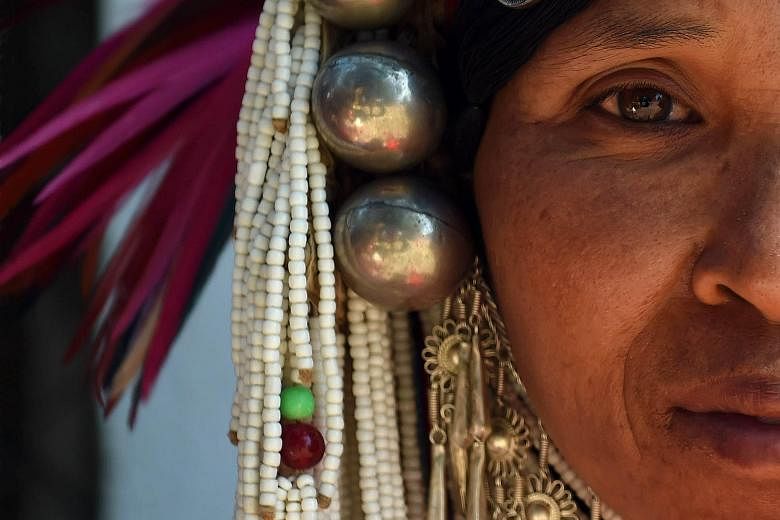Myanmar is holding what is shaping up to be its first credible parliamentary elections in decades on Nov 8. And there is even more good news.
After more than six decades of civil war, eight armed ethnic minorities signed a nationwide ceasefire at a grand ceremony in the capital Naypyitaw on Oct 15. During the ceremony, President Thein Sein expressed optimism that additional armed ethnic groups will sign later on. The signing ends almost two years of negotiations.
Credible parliamentary elections and a nationwide ceasefire are two important milestones in a complex and far-reaching reform process that the ruling generals embarked upon more than four years ago. Simultaneously, they are trying to introduce a modicum of democracy while keeping control of the process. The army is guaranteed 25 per cent of the seats in Parliament and Ms Aung San Suu Kyi, the Nobel Peace Prize winner and leader of the opposition National League for Democracy, is barred from running for the presidency because her children hold foreign passports.
DIFFICULT TRANSITION
Why do we know the parliamentary elections will be reasonably credible? Because the government has worked with the International Foundation for Electoral Systems and other international organisations and donors to draw up the rules for the elections.
The election commission will also allow teams of international observers, including the Carter Centre, to monitor the vote. The district results in Myanmar's first-past-the-post electoral system will be announced at the local level. This leaves no opportunity to stuff ballot boxes on the way to the capital, Zimbabwe-style. Still, it would be somewhat naive to expect the elections to be totally free and fair. Myanmar is still a country in the middle of a difficult transition and this will be the first relatively free election in decades. As well, in some border areas, the government does not control the territory and voting has been cancelled in some communities because of the security situation.

Instead of fighting the many minorities that control the border regions, the semi-civilian government has embarked on a series of negotiations that may eventually result in a federal state, or at least one that gives ethnic groups greater autonomy in the areas where they predominate - that at least is the wish of the ethnic groups and has been since the country gained independence.
Finally, President Thein Sein started to open up the economy after 50 years of autarky that brought widespread poverty and a sclerotic economy dominated by a well-connected elite. Along with the economic reforms and a more welcoming environment for foreign investment, Mr Thein Sein's government released most political prisoners - some remain - and removed formal press censorship that has led to a vibrant media culture.
To put the change in perspective: For the first time in a quarter century, some Thai political activists prefer the safety and freedom of Yangon over the increasingly stifling repression by the Thai generals. Over the last decades, persecuted political activists and Karen went in the other direction.
Anybody who expects that Myanmar after Nov 8 will turn into a Western liberal democracy led by Ms Suu Kyi, or those who want to better understand the rationale and challenges of the country's transition, would do well to read the new book Blood, Dreams And Gold, The Changing Face of Burma. It's written by Mr Richard Cockett, until recently the South-east Asia correspondent for The Economist.
The title refers to an era when Rangoon (now Yangon) was the thriving mercantile capital of British colonial Burma. It was one of the most modern, cosmopolitan and exciting cities in the East, "a world at its zenith", as the poet Pablo Neruda described it in 1927 when he was the Chilean consul there, "a city of blood, dreams and gold".
Despite suffering decades of decay and neglect since General Ne Win took control, nationalised the economy and closed the borders in 1962, enough of this part of the city survives to evoke that city of dreams and gold - a precursor of the modern globalised world when it possessed one of the most modern telephone networks in the world. Rangoon had become a predominantly Indian city with many successful Scottish, Chinese and Armenian businessmen. All were attracted by oil, teak, rubber, tungsten, lead, silver, jade and much else. It was a plural society that even had a Jewish mayor in 1910. It was also a time bomb. This mercantile and cosmopolitan city largely excluded the Burmese. This plural and vital society was alien to them. They even had to learn Hindi to be able to communicate with the Indian telephone operators the British colonial administration had brought along with many other civil servants from other parts of the British Raj, of which Burma was no more than a province for many years.
A PEOPLE PAUPERISED
This exclusion of the Burmese led to such resentment that after the protection of the British disappeared after independence in 1948, successive governments and military rulers tried hard to undo everything related to these alien aspects of Rangoon, starting with the expulsion of most of the ethnic Indian population of Rangoon. This was followed in 1962 by the nationalisation of the economy as part of the introduction of Gen Ne Win's so-called Burmese Way to Socialism.
The process of reclamation by the Burmese is still ongoing, as we saw recently in the adoption of legislation that places restrictions on marriages between Burmese Buddhists and Muslims. Such laws are proclaimed as achievements by President Thein Sein's Union Solidarity and Development Party in campaigning for the upcoming elections. This "Burmanisation" is most visible in the new capital of Naypyitaw. Here, you encounter a sort of fantasy retro-Burma. "Here, the military regimes have attempted to recreate the Burman kingdoms of old and to reimagine Burma as if the country's recent history never happened," Mr Cockett writes.
It's as if the minorities who make up around 35 per cent of the population don't exist. Many of the ethnic groups never wanted to be part of Myanmar but were persuaded by General Aung San, the father of Ms Suu Kyi , to join after promising them full autonomy, and in the case of the Shan, even the right to secede. Instead of autonomy, they got more than 60 years of civil war and waves of Burmanisation. Muslims have been particular targets of the Buddhist Burman majority and this has intensified in recent years with communal conflict in areas of Rakhine state where the Rohingya Muslims live and a denial of their civil rights and rights to citizenship, even if most of the Rohingya have lived in these communities for decades.
Mr Cockett's well-researched book contains many fascinating first-hand testimonies. From Kachin warriors who fought with the British in World War II against the Japanese and Gen Aung San's Burmese army - allied with the Japanese until March 1945 - to victims of the catastrophic drug policies that have made parts of north-western Myanmar centres of the heroin and methamphetamine trade. In some areas in Shan and Kachin, 80 per cent of young people are reported to be drug addicts.
The minorities who mostly live in the hills and borderlands, versus the Burmans who mostly live in the central lowlands, is the second fault line that President Thein Sein and his reforming generals are trying to overcome.
It is a tough one. To come to a political settlement with the minorities will require the creation of a new and federal Myanmar based on some form of autonomy and equal rights for the many minorities. It will be a state that never existed. It will also require an end to Burmanisation.
Much will depend on how many seats the Shan, Chin, Karen and Kachin parties will be able to win in their regions in the November parliamentary elections. The fight is not just over ethnicity and religion, but also over the economic benefits that the Burmese military and the business elite will have to start sharing with the minorities.
A good example involves jade. Global Witness estimated the illegal jade trade at US$31 billion (S$43 billion) in a report published last week. The real figure is difficult to estimate, as most of the trade takes place in an opaque world controlled by elite businessmen, smugglers, rebel groups, drug lords and elements of the military.
In short, Myanmar has never been a peaceful, rich, well-functioning nation state, and one election can only be a step in its overhaul. A complex and profound transformation has only just begun. "One point of writing Blood, Dreams And Gold was to uncover just how rundown and pauperised people had become in Myanmar in the name of Burmanisation, so we have a more clear-sighted view of exactly how far the country still has to go," Mr Cockett writes.
Indeed, Myanmar has a mountain to climb, but it remains impressive how much has been set in motion in the last four years.
•The writer is managing partner of Vriens & Partners, a government affairs firm with eight offices around South-east Asia.

